Movement, be it in the form of physical actions or changing images, is a tool for engagement. “I want to see my artwork really move,” Baharudin Mohd Arus said. “When it moves, it attracts attention.”
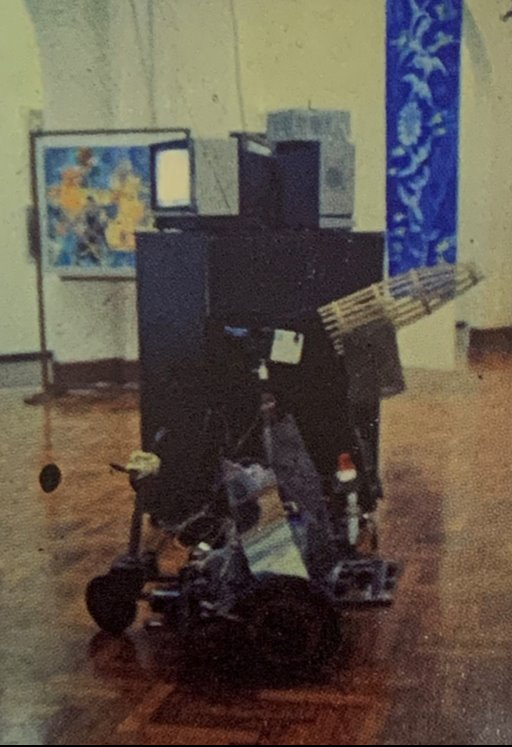
Baharudin Mohd Arus. The Medium is the Message (After Marshall McLuhan). 1989.
Installation view from Universiti Sains Malaysia (USM), 1989. Collection of the artist. Ⓒ Baharudin Mohd Arus.
About the Artwork
Among Baharudin’s kinetic works, The Medium is the Message (After Marshall McLuhan)
integrates movement in the most diverse ways, from continuous and rhythmic to spontaneous or
interrupted. It is embedded with movement from the past and the present—even movement that
has yet to happen.
In the gallery, an automaton moves. The curious machine with a lawnmower base wheels by. On
a pole at its front is a windshield wiper switch, which indicates the speed of the
automaton’s steady and repetitive motions. On a rod at its rear, a red light blinks—a beacon
on this brute apparatus.
In the gallery, an automaton moves. The curious machine with a lawnmower base wheels by. On
a pole at its front is a windshield wiper switch, used to initiate the automaton’s steady
and repetitive motions. On a rod at its rear, a red light blinks—a beacon on this brute
apparatus.
The mouth of a traditional Malaysian fishing trap gapes open, as if ready to “swallow” into
its hollow barrel the perpetually changing images captured by a video camera mounted on the
device.
The automaton slowly circles around a black plinth on which two television
monitors sit back-to-back. One television plays a live feed from the automaton’s camera,
which captures its surroundings. Through the live stream, Baharudin asserts that the viewer
is not merely a passive receiver of images and messages; by appearing before the camera,
they can become part of the artwork and influence its meaning. Unlike the early days of
television, when televised content was determined by broadcast companies, corporations and
the government, each with their own agendas, ordinary people can shape the media and lend it
persuasive power.
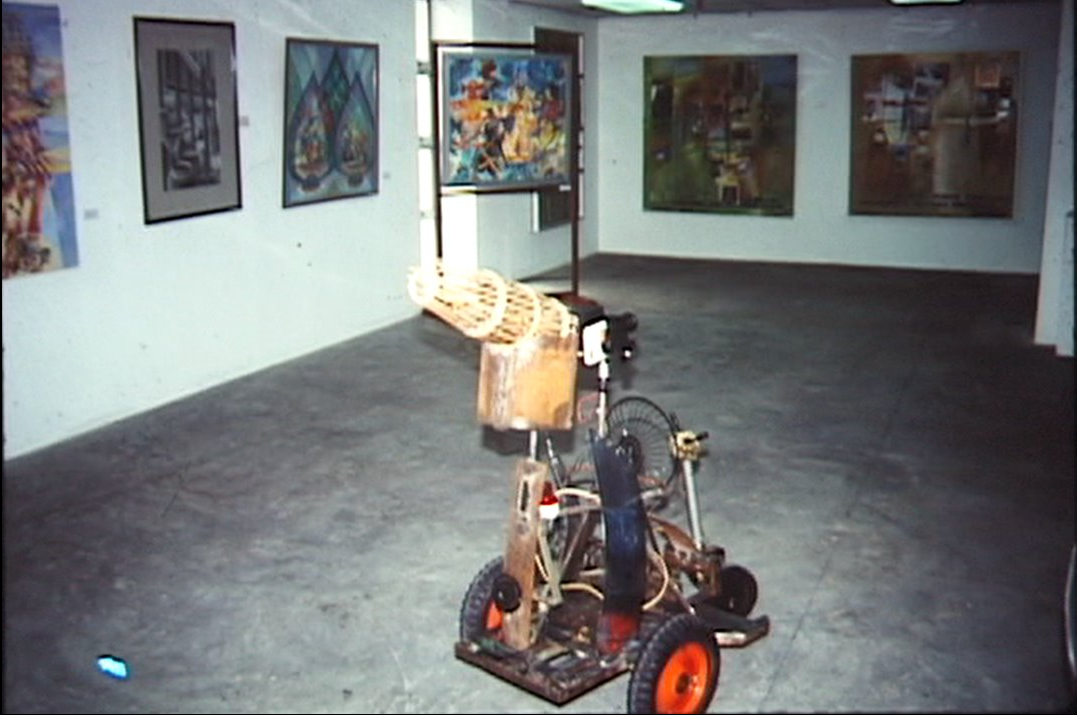
Baharudin Mohd Arus. The Medium is
the Message (After Marshall McLuhan). 1989. Collection of the artist.
Image courtesy
of Ray Langenbach Ⓒ Baharudin Arus
The other television plays two videos on loop: a black-and-white video montage of hurricanes, routines from everyday life and crowds circling the Kaaba, a building at the centre of the Great Mosque of Mecca; as well as colour video documentation of a sewang dance by the Mah Meri indigenous people. Designed to mirror these natural orbital flows, the automaton’s movement contends technology’s increasing proximity to life.
The Medium is the Message (After Marshall McLuhan) integrates movement in the most diverse ways, from continuous and rhythmic to spontaneous or interrupted.
Captivated by the writings of media theorist Marshall McLuhan, the Swiss artist Jean Tinguely’s kinetic sculptures and new ideas introduced by his then-teacher, the American artist Ray Langenbach, Baharudin created this work during his studies at Universiti Sains Malaysia (USM) in Penang. The work, first shown in 1989 in a group student exhibition at USM, unveils a symbiotic relationship between video technology and the viewer, demonstrating media theorist Marshall McLuhan’s proposition that the nature of the medium used to convey a message determines how the message is perceived—or, concisely phrased, The Medium is the Message. Another version using four channels, which is entirely undocumented, was shown at a gallery in Komtar, Penang in the same year. No components from the original, including the video, survive.
For See Me, See You: Early Video Installation of Southeast Asia, Baharudin recreated his seminal work in entirety with minor modifications. In 1989, he sourced clips from commercials and the news on television for his video montage, whereas in 2023 he used footage from YouTube. The 2023 version also features an updated video camera, which has a body that is similar to that of older models and produces a live feed. The artist and the exhibition team also added a track on the floor, which guides the automaton to consistently travel along a specific course.
About the Artist
Baharudin Mohd Arus (b. 1951, Malaysia) is one of Malaysia’s pioneering media artists. Interested in motors from a young age, Baharudin has been making robotic sculptures and kinetic artworks since 1989. He participated in the Balai Seni Visual Negara’s Young Contemporary Art Exhibition in 1969, 1971, 1975 and 1981. Baharudin is a professor at Universiti Malaysia Sabah and has also written several papers on fine art, art education, the indigenous art of Malaysia, the art of Brunei and Islamic art history. He received his BFA and PhD from Universiti Sains Malaysia (USM), Malaysia and his MA from the University of Tulsa, USA. He is currently a lecturer in the Art and Design faculty at City University Malaysia.
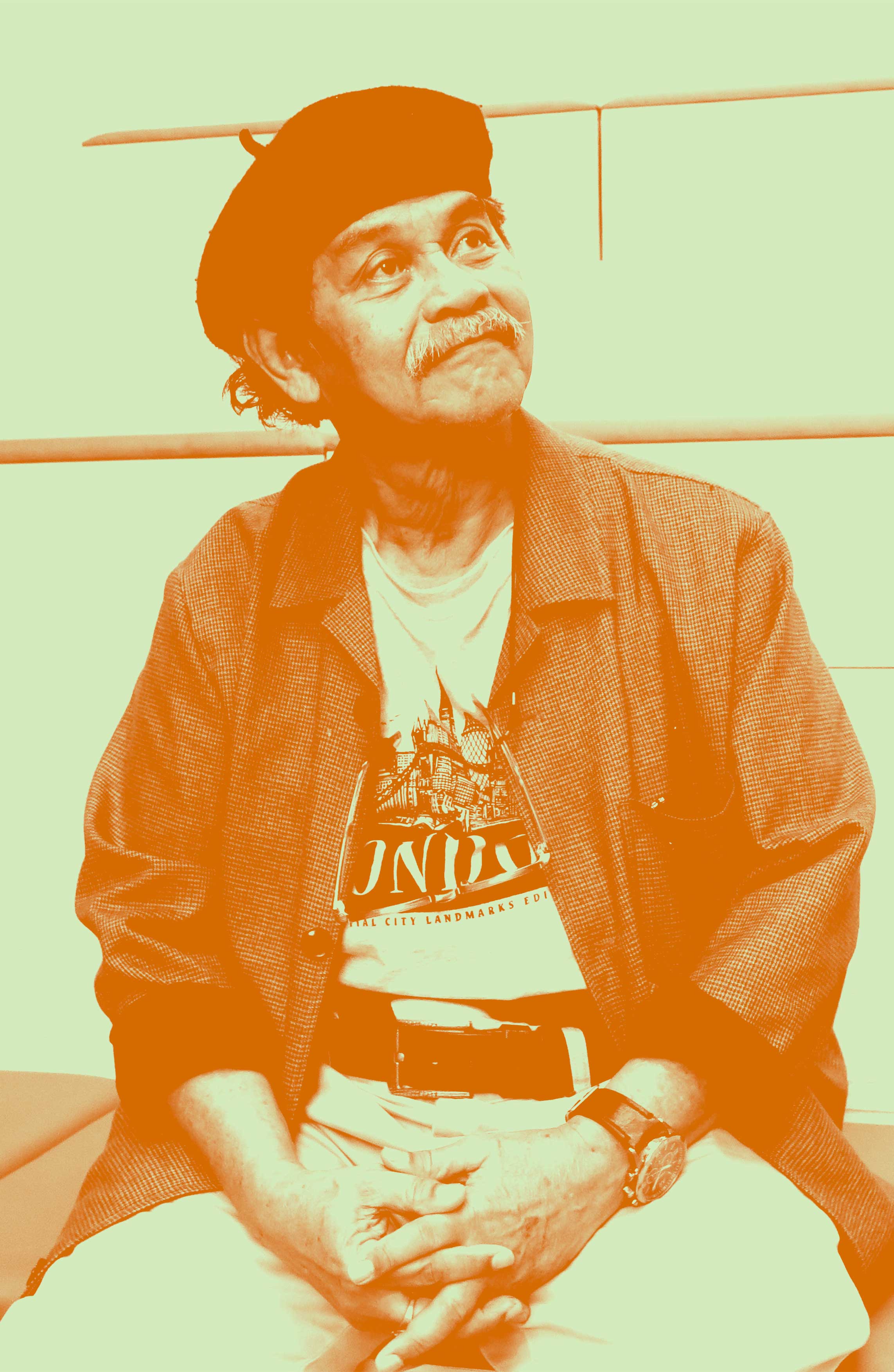
Image credit: Kong Yin Ying
Discover More Details
Click the buttons to engage with The Medium Is The Message (After
Marshall McLuhan)
to learn more
about the making of the artwork.
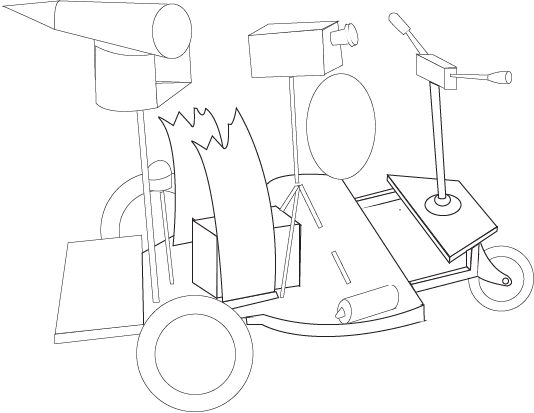
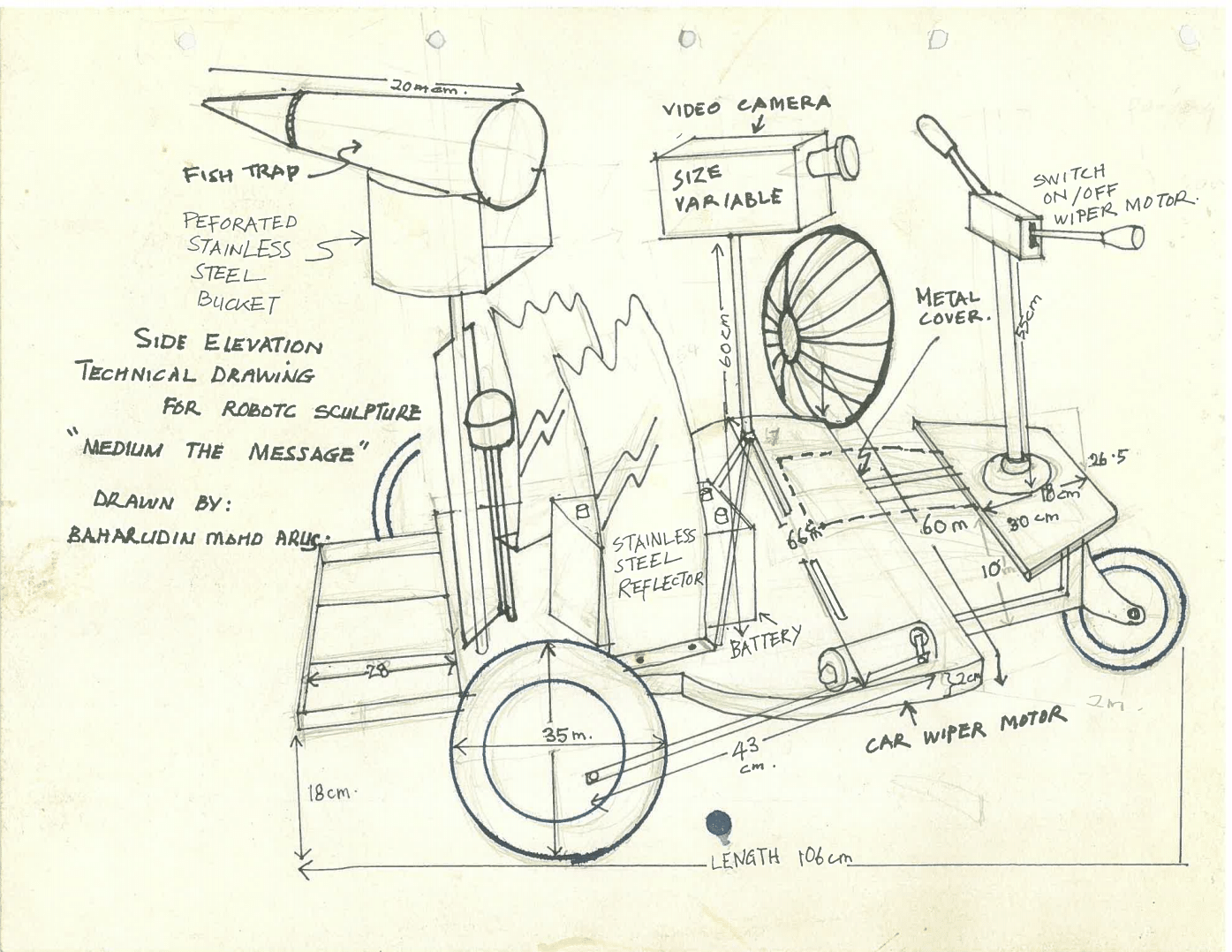
Baharudin Mohd Arus’ technical drawing of The Medium is the Message (After Marshall McLuhan), 2022, illustrating a machine made with a lawnmower, a video camera and a fish trap.
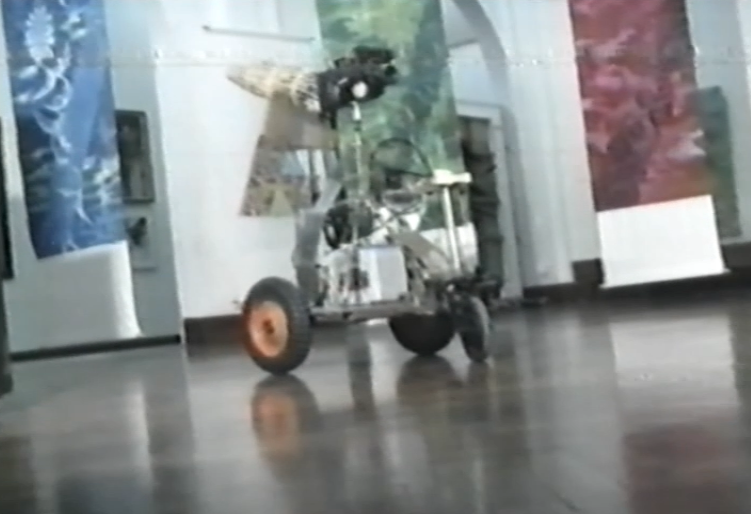
Still from video documentation of The Medium is the Message (After Marshall McLuhan) at Universiti Sains Malaysia on TV3, 1989.



